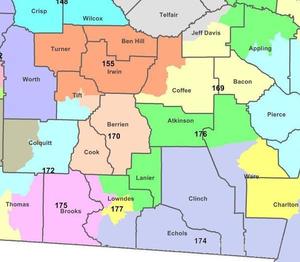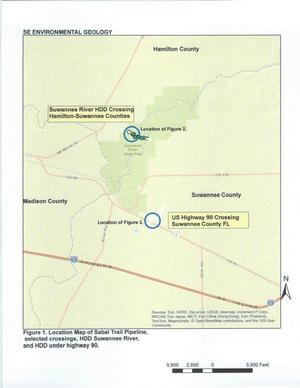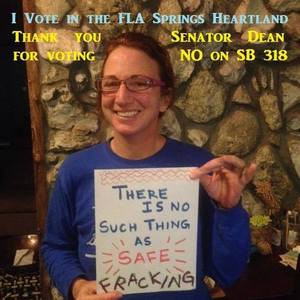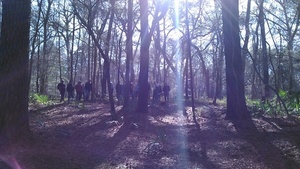Here’s the letter to the U.S. Army Corps of Engineers that the Hamilton BOCC voted unanimously 15 March 2016 to send. Other counties in Florida, Georgia, and Alabama may want to send similar letters.
BETH BURNAM
District 1 — Jennings
JOSH SMITH
District 2 — Jasper
ROBERT E. BROWN
District 3 — Jasper
RANDY OGBURN
District 4 — White Springs
BUSTER OXENDINE
District 5 — JasperHAMILTON COUNTY
FLORIDA
Office of
Board Of County CommissmnersGREG GODWIN
Clerk of Courts
JOHN H. MCCORMICK
County Attorney207 Northeast First Street
Room 106
Jasper, Florida 32052
(386) 792-1288
FAX (386) 792-3524Attn: Mark R. Evans, Senior Project Manager,
Jacksonville Permits Section
U.S. Army Corps of Engineers
Regulatory Division
Post Office Box 4970
Jacksonville, Florida 32232RE: Sabal Trail Transmission, LLC
FERC Document No. CP15-17-000Dear Mr. Evans:
The Board of County Commissioners of Hamilton County recently received the Environmental Geology report prepared by Dennis Price and dated 10/25/2015, a copy of which is attached hereto.
If you will note, the findings of Mr. Price directly contradict Continue reading










